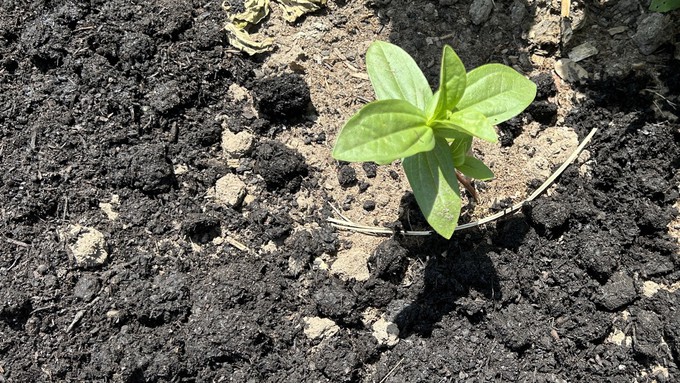
Learn how to make your own 'garden gold'

Compost makes great mulch for plants already growing, and will improve the soil over time, too. Kathy Morrison
One of the best ways to help your garden get through the heat of summer: Mulch.
This blanket of organic matter not only keeps roots cooler, but maintains moisture and feeds soil microbes.
Some of the best mulch? Well-aged compost – especially if made with your own kitchen scraps and garden waste.
Find out more, including how to make your own “garden gold,” during two free workshops offered by the Roseville Utility Exploration Center.
“Compost and Mulch” will be held on two Saturdays: Aug. 19 at the RUEC Tech Lab, 1501 Pleasant Grove Blvd., and repeated on Sept. 23 at the Maidu Community Center, 1550 Maidu Drive, Roseville. Each 90-minute class starts at 10 a.m.
Registration is required. Roseville’s workshops fill up quickly and seating is limited, so sign up now.
Here’s the class description: “Did you know yard debris and kitchen scraps can improve your soil? It’s true! Composting reduces waste sent to the landfill, helps you create your own free fertilizer, and saves water. Learn about bins, equipment, and materials used in a variety of composting styles.”
To sign up for “Compost and Mulch” or other free Roseville workshops: https://www.roseville.ca.us/residents/utility_exploration_center.
Comments
0 comments have been posted.Sacramento Digs Gardening to your inbox.
Food in My Back Yard Series
April 1: Don't be fooled by these garden myths
March 25: Fertilizer tips: How to 'feed' your vegetables for healthy growth
March 18: Time to give vegetable seedlings some more space
March 11: Ways to win the fight against weeds
March 4: Potatoes from the garden
Feb. 25: Plant a fruit tree now -- for later
Feb. 18: How to squeeze more food into less space
Feb. 11: When to plant? Consider staggering your transplants
Feb. 4: Starting in seed starting
Sites We Like
Garden Checklist for week of March 30
Your garden doesn’t mind April showers. Get busy now to enjoy those future flowers.
* Get ready to swing into action in the vegetable garden. As nights warm up over 50 degrees, start setting out tomato, pepper and eggplant transplants.
* From seed, plant beans, beets, cantaloupes, carrots, corn, cucumbers, melons, pumpkins, radishes and squash. (Soak beet seeds overnight in water for better germination,)
* Plant onion sets.
* In the flower garden, plant seeds for asters, cosmos, celosia, marigolds, salvia, sunflowers and zinnias.
* Transplant petunias, zinnias, geraniums and other summer bloomers.
* Plant perennials and dahlia tubers for summer bloom.
* Transplant lettuce and cabbage seedlings.
* April is the last chance to plant citrus trees such as dwarf orange, lemon and kumquat. These trees also look good in landscaping and provide fresh fruit in winter.
* Smell orange blossoms? Feed citrus trees with a low dose of balanced fertilizer (such as 10-10-10) during bloom to help set fruit. Keep an eye out for ants.
* Apply slow-release fertilizer to the lawn.